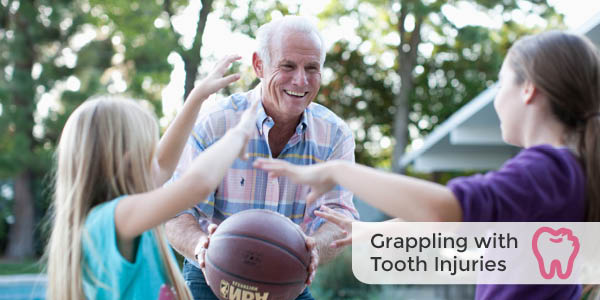
A Healthy Smile Is Your Best Accessory
Body piercings have become increasingly prevalent over the past decade, and with more and more celebrities like Victoria Beckham, Tyrese, and Christina Aguilera sporting them, they are only gaining popularity among people of all ages. While piercings offer people the opportunity to express their individuality and add some extra bling to their personal style, some of the most popular piercings are located in the mouth area, which can lead to the rapid deterioration of oral health.
Popular face and mouth piercings include those in the tongue, lip, and cheek areas. The following are just some of the health risks and side effects associated with these piercings.
- Infection: Your mouth is home to a large number of bacteria that breed in moist environments. This is the perfect environment for an infection to occur. When an infection occurs in your mouth, it can become life threatening if not treated immediately.
- Excessive bleeding: On occasion a blood vessel gets punctured during the piercing process and results in prolonged bleeding. If not dealt with properly, severe blood loss can cause complications.
- Damaged gums and teeth: People with mouth piercings often develop the habit of playing with them, which may include biting and twirling them around the mouth. This can lead to scratched, cracked, and broken teeth and fillings. It can also damage the gum line.
- Allergic reactions: Sometimes people may unknowingly be hypersensitive to metals and can experience an allergic reaction.
- Nerve damage: Numbness at the site of the piercing is common. However, in some cases it remains a permanent condition due to nerve damage.
- Excessive saliva: Heavy salivation can result from wearing jewelry in your mouth. This can cause complications with your ability to chew and swallow correctly. It can also interfere with the pronunciation of words.
If you do decide to get a face or mouth piercing, or if your child or adolescent has one, be prepared for four to six weeks of healing time. The following are some tips that will help you maintain your oral health should you decide to keep or get a mouth piercing:
- Make sure to keep the piercing site clean after you eat. Clear away any food particles by using mouthwash after each meal.
- Remove all jewelry when participating in sports, and ask the dentist about getting a mouthguard for protection.
- If you notice that you are developing habits that include biting or clicking your piercing against your teeth, stop immediately or consider removing the jewelry.
- If you think you may have an infection or might be developing an allergic reaction to the metal in your mouth jewelry, remove it immediately and call your doctor.
Choosing to get a facial or oral piercing is an aesthetic decision that impacts your oral and whole health. Your at-home oral hygiene routine will be more important than ever should you choose to get one, as will your routine visits to the dentist and your dental cleanings. Make sure to let our provider know if you have an oral or mouth piercing so that he can help create a dental plan that will protect and maintain your best oral health.
To find out more about mouth piercings, your oral health, and how we can help protect your teeth and gums, give your Lancaster dentist a call at (661) 952-7865 today.
More
By admin
17 Feb, 2016
Dental Tips, General Dentistry, General Health, Lifestyle
chipped tooth, cracked tooth, dental emergency, dental injury, dental mouthguard, dental tips, fractured tooth, sport mouthguards, tooth loss
This time of year the weather shifts to longer, warmer, and brighter days allowing families who have been in hibernating to begin enjoying some of their favorite outdoor activities again. From hiking and biking to actively engaging in sports like baseball and soccer, the fun factor is high and so is the opportunity for dental disasters.
There are many ways to protect you and your children’s teeth while enjoying the active side of life. Mouth guards and helmets are a must, but even with the best precautions in place, that unexpected spill from a bike or a missed footstep on the trail can quickly lead to a dental emergency. While you can’t predict when a dental emergency will happen the following tips will help you navigate every thing from a broken tooth to damaged orthodontics so you can get back to enjoying your springtime fun in no time at all.
- Knocked-Out Tooth: Rinse the tooth carefully, making sure not to wash away any remaining tissue. Attempt to place the tooth back in its socket carefully. If this is not possible, place it in a container of milk, or water with a pinch of table salt. Call your emergency dentist immediately. Your tooth has the best chance of being saved if you are seen within an hour of having it knocked out.
- Chipped, Cracked, and Broken Teeth: Gather and rinse all broken pieces of the tooth. Rinse your mouth with warm water and apply gauze if there is bleeding. Use a cold compress to relieve pain and swelling in the injured area, and contact your emergency dentist to be seen immediately.
- Fractured Tooth: Dentists can easily fix fractures with a composite restoration. A dentist should be seen within a couple days of the injury.
- Partially Dislodged Tooth: When a tooth gets pushed out of its proper position, it is important to manage the pain and get into your emergency dentist immediately. Apply a cold compress to the area and take a pain reliever such as acetaminophen or ibuprofen as needed.
- Lost or Broken Crown: Save your crown and set up an appointment with your emergency dentist right away. If possible, use over-the-counter dental cement to reattach the crown. If there is any pain, take an over-the-counter pain reliever such as ibuprofen or acetaminophen. Clove oil can also be used to soothe sensitive areas.
- Broken Braces: Orthodontic wax can be used to cover or temporarily reattach loose brackets and broken wires. If a broken wire is poking out and into your cheek or tongue, use the eraser end of a pencil to move it into a comfortable position, then cover it with wax, gauze, or cotton. See your orthodontist to have your braces repaired.
- Soft-Tissue Injuries: Tears, punctures, and lacerations to the soft tissues of the cheek, lips, or tongue should be cleaned and packed with gauze. A trip to the emergency room is necessary if stitches are needed.
If you or your children are considering joining a full-contact sport, preparing for a dental emergency is key to preventing tooth loss.
The following are a couple of items and information to have on hand:
- Dentist’s phone number and email address
- Small, portable container for dental emergency kit
- Saline solution
- Tissue
- Gauze
- Orthodontic wax
- Dental cement
- Compress
- Ibuprofen and/or acetaminophen
Finally, one of the most important steps you can take toward protecting your smile in any sports-related activities is talking to your dentist about a mouthguard. According to the American Dental Association, sport mouthguards have been shown to reduce the risk of sport-related dental injuries. Having a dental provider fit you with one that is resilient, comfortable, and durable could mean the difference between keeping or losing your teeth in a sports-related incident.
To find out more about mouthgaurds and protecting your teeth, call your Lancaster dentist today at (661) 952-7865.
More


